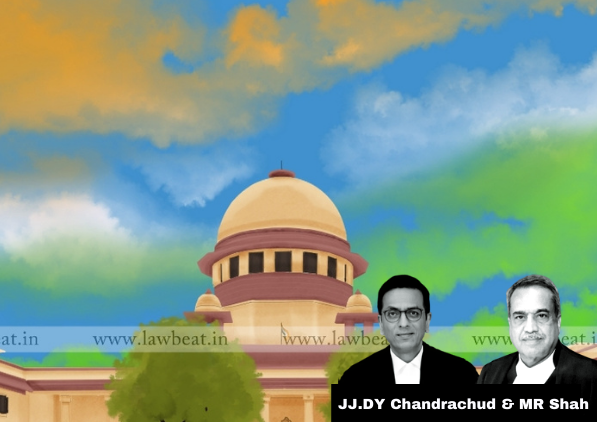Person In Illegal Occupation Of Government Land/Panchayat Land Cannot Claim Regularisation As A Matter Of Right: Supreme Court

The Supreme Court has held that persons who are found to have ascribed to illegal occupation of Government Land/ Panchayat land are not entitled to regularisation.
While dismissing Special Leave Petition moved against the judgment passed by Punjab and Haryana High Court, A Division Bench of Justice M.R. Shah and Justice D.Y. Chandrachud said, “Regularization of the illegal occupation of the Government Land/Panchayat Land can only be as per the policy of the State Government and the conditions stipulated in the Rules. If it is found that the conditions stipulated for regularisation have not been fulfilled, such persons in illegal occupation of the Government Land/Panchayat Land are not entitled to regularization.”
Facts of the case are briefly mentioned hereunder:
- That the petitioners, who are residents of the village Sarsad, District Sonepat encroached upon the panchayat land and constructed houses.
- That the Government of Haryana in the year 2000, framed a policy regarding sale of panchayat land in unauthorised possession inside/outside the Abadi Deh.
- That the Government also amended the Punjab Village Common Lands (Regulations) Rules, 1964 (hereinafter referred to as “1964 Rules”) and thereby issued a notification dated 01.08.2001 in this regard.
- That subsequently in the year 2008, Rule 12(4) was brought which authorised the Gram Panchayat to sell its non-cultivable land in Shamlat Deh to the inhabitants of the village who have constructed their houses on or before 31.03.2000, subject to fulfilment of the conditions mentioned in Rule 12(4).
- That as per Rule 12(4) of the 1964 Rules, the construction of the house on the panchayat land (i) must have been put on or before 31.03.2000, (ii) must be a non-cultivable land, (iii) must not result in any obstruction to the traffic and passer-by, (iv) illegal occupation shall be up to a maximum of 200 square yards.
- That the petitioners herein submitted an application before the competent authority along with the resolution of the concerned panchayat and requested to sell the lands occupied by them illegally, in exercise of powers under Rule 12, which was rejected noting that the combined land occupied by the petitioners was 737.37 square yards.
- That the petitioners approached the High Court against the order of the competent authority, which was again dismissed by a Division Bench relying on the case of Jagpal Singh v. State of Punjab, (2011) 11 SCC 396.
- That feeling aggrieved and dissatisfied with the aforementioned judgment, the petitioners approached the Top Court through the present SLP.
In addition to its decision, Court placed reliance on the case of State of Odisha v. Bichitrananda Das, (2020) 12 SCC 649, wherein it was said, “An applicant who seeks the benefit of the policy must comply with its terms.” As for the present case, the policy framed by the State Government under Rule 12(4) of the 1964 Rules specifically mentioned of four conditions out of which the petitioners are in clear violation of one (possessing land more than 200 square yards). Therefore, the Court concurred with the findings of the High Court and dismissed the present SLP, placing heavy reliance on Jagpal Singh case where the Top Court reprimanded trespassers who have illegally encroached upon the Gram Sabha/Gram Panchayat land, using muscle/money powers.
